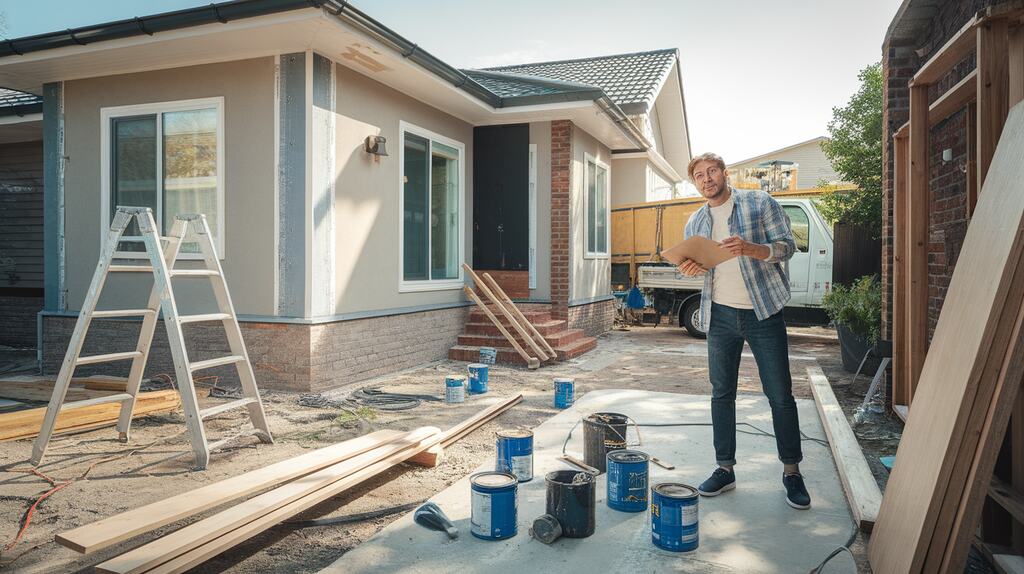Home renovation projects quickly spiral into chaos when you ignore crucial logistical planning. While most homeowners obsess over design elements and materials, they frequently neglect practical considerations that directly impact project success.
These oversights not only create unnecessary stress but often lead to budget overruns and timeline extensions.
Before you begin your next remodeling project, ensure you’ve addressed these six frequently overlooked logistical details.
1. Realistic Timeline Buffers
Most renovation projects take 30-50% longer than initially estimated. This delay occurs even with experienced contractors. Weather complications, material backlogs, and unexpected structural issues derail even the most meticulously planned schedules.
Smart homeowners build buffer time into every phase of their renovation project. Add at least two extra weeks for a bathroom remodel and a minimum of a month for kitchen renovations.
For whole-home remodels, expect delays of six weeks or more. This buffer prevents the stress of constantly revised completion dates and helps maintain your sanity throughout the process.
2. Proper Worker Facilities
Many homeowners fail to plan for basic worker needs, creating inefficiencies that extend project timelines. Construction crews require adequate facilities to maintain productivity.
OSHA regulations actually mandatespecific requirements for construction toilets on job sites, including how many units you need based on crew size. For smaller home renovations with fewer than 20 workers, at least one portable toilet must be available.
Without proper facilities, workers waste valuable time leaving the site, directly impacting your project timeline and budget.
Beyond toilets, create designated areas for workers to take breaks, eat meals, and store personal items. This small consideration significantly improves crew efficiency and project flow.
3. Utility Interruption Planning
Renovations frequently require temporary disconnection of essential utilities. Without proper planning, you’ll find yourself without water, electricity, or heat at the most inconvenient times.
Create a detailed schedule of all planned utility interruptions before work begins. Arrange alternative accommodations for extended outages or rent necessary equipment like generators or portable heating units.
For major projects affecting multiple utilities, consider temporary relocation during critical phases rather than enduring weeks of disruption.
4. Secure Storage Solutions
Construction materials frequently arrive before they’re needed for installation. Without designated storage areas, valuable materials risk damage, theft, or simply creating obstacles throughout your home.
Dedicate secure, weatherproof space for material storage before your project begins. Consider renting portable storage containers for larger renovations or garage remodels where existing storage disappears.
Ensure storage locations remain accessible to workers but protected from potential damage during construction activities.
5. Dust and Debris Containment Systems
Most homeowners dramatically underestimate renovation mess. Without proper containment systems, dust infiltrates your entire home, damaging electronics, irritating respiratory conditions, and creating endless cleaning requirements.
Professional-grade containment systems use plastic sheeting and negative air pressure to isolate construction zones. HEPA air scrubbers remove airborne particles before they spread. This investment protects non-renovation areas from contamination and significantly reduces post-project cleaning time.
For multi-room projects, create clear pathways for workers that minimize cross-contamination between living spaces and construction zones.
6. Detailed Daily Access Plans
Renovation projects transform your home into an active construction site, creating complex logistical challenges for maintaining normal household functions. Without clear access planning, you’ll face daily frustrations navigating your own home.
Establish and communicate designated entry points, parking areas, and work zones before construction begins. Create schedules detailing when specific areas remain inaccessible and plan household activities accordingly.
For kitchen renovations, set up temporary food preparation stations with essential appliances. For bathroom remodels, arrange shower schedules that accommodate both family needs and work hours.
Preventing Logistical Nightmares
Successful renovations require more than design vision and quality materials. By addressing these often-overlooked logistical details before your project begins, you create the foundation for a smoother renovation experience.
Take time to develop comprehensive plans for each of these areas, communicate clearly with your contractor about your expectations, and prepare contingencies for inevitable complications. This preparation transforms potentially chaotic renovations into manageable projects with predictable outcomes.

